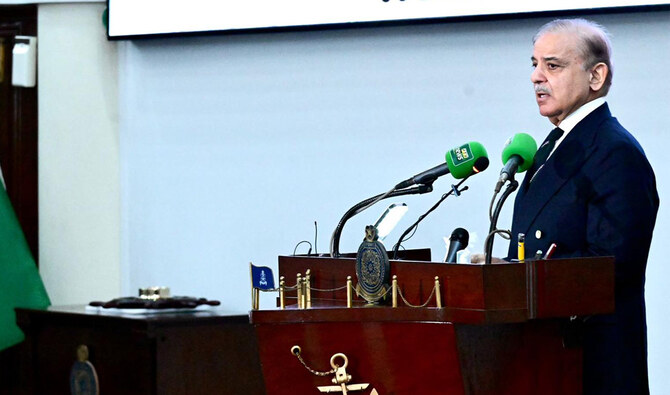ISLAMABAD: Chief of Army Staff (COAS) Field Marshal Asim Munir called for development initiatives and their smooth execution in southwestern Balochistan, the country’s most volatile province, to address militant violence and ensure long-term stability in the province, according to a military statement on Wednesday.
Balochistan has seen a surge in separatist violence and coordinated attacks targeting security forces, foreign nationals and non-local commuters on highways and buses. The mineral-rich province borders Afghanistan and Iran and is central to high-profile infrastructure projects under the multibillion-dollar China-Pakistan Economic Corridor (CPEC), adding to its strategic significance and exposure to unrest.
The army chief made the comments while addressing participants of the 16th National Workshop Balochistan, a forum established in 2017 for the exchange of ideas related to the region, in Rawalpindi. The audience included parliamentarians, civil society representatives, civil servants, media professionals and youth leaders.
“The COAS highlighted the pivotal role of development initiatives in Balochistan, advocating for enhanced inter-agency cooperation and a cohesive national approach to propel provincial progress and national advancement,” the Inter-Services Public Relations (ISPR), the military’s media wing, said in the statement.
Munir reiterated the military’s commitment to eliminating militancy and said violent extremism must be countered, while calling for a unified national response.
He also reiterated that India was sponsoring militant proxies to destabilize Balochistan, as he referred to “Fitna-al-Khawarij,” Pakistan’s official term for Tehreek-e-Taliban Pakistan (TTP), and “Fitna-al-Hindustan,” used to describe the Balochistan Liberation Army (BLA) and other separatist outfits.
The army chief maintained these actors were part of an Indian “hybrid war” strategy and would meet the same fate as the neighboring nuclear state itself , which Pakistan said was defeated in the four-day military conflict in May.
Pakistan has repeatedly accused India of fomenting unrest in Balochistan, allegations New Delhi denies.
Munir said, however, that such efforts had failed to shake the “deep-rooted patriotism” of the province’s people.
Separatist groups in Balochistan have long accused the Pakistani state of exploiting the province’s vast natural resources, ranging from gas and coal to copper and gold, without equitably sharing the benefits with local communities. They claim successive governments have prioritized extraction over development, leaving the region impoverished despite its mineral wealth.
These groups also allege widespread rights violations by the country’s security forces, including enforced disappearances and extrajudicial detentions of suspected activists. Human rights organizations have also echoed some of these concerns. Pakistani authorities have, however, consistently rejected such accusations, maintaining that a significant number of development projects are underway to uplift Balochistan’s economy, improve infrastructure and expand access to education and health care.
Earlier this month, Balochistan Chief Minister Sarfaraz Bugti said his administration was ready to reconcile with “disgruntled” ethnic Baloch elements. However, he also issued a warning that anyone found involved in militant violence would be dealt with “with iron hands.”
















